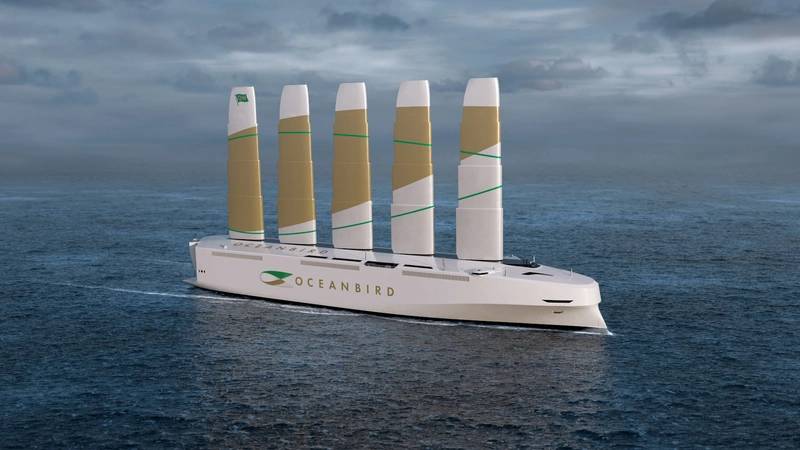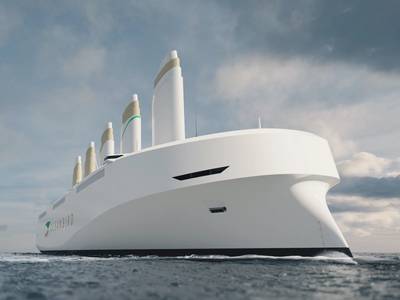Sweden’s Wallenius Marine AB, which designs and builds ships, is currently testing a sleek white model of an “Oceanbird” automobile carrier in a bay in the Baltic Sea.
Per Tunell, Wallenius’ chief operating officer, said results from the seven-meter model were encouraging and that he was “very confident” the full-scale Oceanbird will be ready to order by the end of next year.
The sail-driven ship could be in service in 2024 on Atlantic routes, he said.
The Oceanbird will be 200 meters long with capacity to carry 7,000 cars. It may be the tallest sailing ship ever built, equipped with wing sails reaching 105 meters above the water.
The sails, however, look little like traditional billowing fabric sails, instead more closely resembling aircraft wings rising vertically from the deck.

The vessel will have engines as a backup, but aims to save 90% of carbon emissions compared to a conventional ship run on polluting bunker fuel.
It will take Oceanbird about 12 days to cross the Atlantic, compared to eight for a fuel-powered ship.
The design “could also be applied as a cruise vessel, a bulk carrier, a tanker,” Tunell said. “One of the key conditions is that it shall be commercially feasible.”
Oceanbird would probably cost a bit more than a conventional car carrier, he said, declining to estimate the exact price.
But operating costs would be lower, especially if governments trying to curb climate-changing emissions impose a price on carbon emissions from using fuel.
The Oceanbird is not the only emerging contender in the low-carbon shipping race.
Neoline in France is seeking orders for a smaller, 136-metre vessel, also suitable for transporting cars or farm machinery.
Like Oceanbird, it reckons its carrier could cut emissions by 90%.


 Reply With Quote
Reply With Quote





 Possibly.
Possibly.





